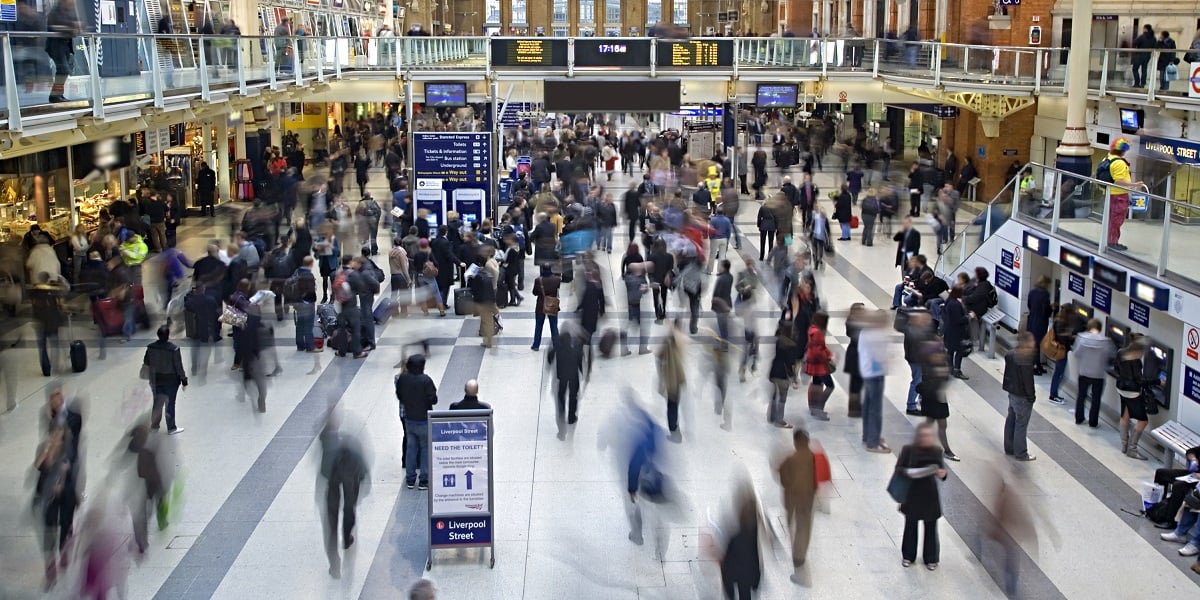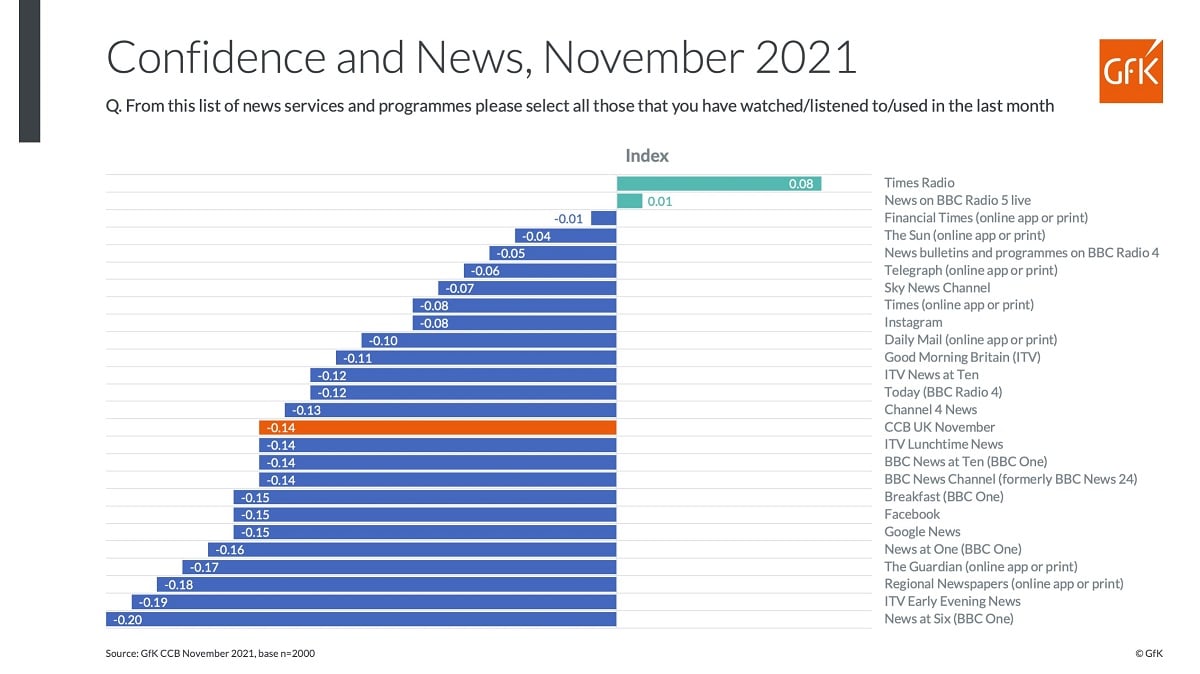02.12.2021
Tune into the news for better financial mental health
Media snapshot by Joe Staton, UK Commercial Lead Media Measurement

Each month since January 1974 GfK has asked consumers how confident they feel about their personal financial future and the economic health of the United Kingdom. Over the decades we’ve seen some real highs in the resulting confidence Index – the summer of 1978 – to the crashing lows of the last global economic downturn in 2008 (a record minus-39). The UK is currently recording a score of minus-14, not surprising given the headwinds of pandemic, inflation, interest rates, shortages, lockdowns etc. even before winter sets in.
This November, in addition to questions about people’s personal financial situation, views on the wider economy now and for the next 12-months, and major purchase index (“now is a good time to buy”), we also asked “how closely do you follow the news?”. This included which news services and programmes you have watched/listened to/used in the last month. There is no trend, and this is only a snapshot but makes for interesting reading when it comes to degree of economic confidence by preferred news outlet.
Marked difference in confidence for news followers versus non-followers
Firstly, and what I find fascinating, is that in the UK there is a huge divergence in economic confidence between those people that follow the news and those that don’t. Respondents who closely follow the news are more confident at minus-12 on the Index than average (at minus-14), whilst ‘newshounds’ are even more confident at just minus-5.
However, those folks who don’t really pay close attention are more likely to be far less confident with a drop to minus-22, and that’s way below average for the November Index. So, for better financial mental health and the feel good factor, it’s time to tune in, sit-up and pay attention. So which titles and programmes fuel the confidence of the nation?

Sign of the Times (Radio)
Times Radio, new to the UK media landscape and an off-shoot of the Times empire leads the pack with a healthy plus-8 score, followed closely by BBC Radio 5 Live with the Financial Times just on the cusp of positivity.
All these channels attract the newshounds with lively and informed debate and a loyal following, and given that Times Radio is only one-year old, confirmation that there’s still space for disruption in the marketplace. At the other end of the Index, it’s regional press and early evening news that seems to help depress economic confidence. Maybe it’s time to revisit content and format in this hugely competitive landscape.
Getting into the consumer mindset
Understanding consumer confidence is key to understanding the future health and wellbeing of the UK economy as a whole. When consumers feel confident, they spend rather than save, fueling 80% of GDP. Conversely when they feel less buoyant, they tend to save not spend and the economy slows. Media consumption and the news in general both boosts and depresses our confidence. In this respect, consumers are just like financial markets, they thrive on positivity and decline with negativity.
As I’ve said, this is only a snapshot of the full findings. We are always happy to discuss the findings and consult on what this means for the future – whatever business you’re in. In the first instance, and for more information, please visit the UK Consumer Confidence Barometer webpage. or contact me with this button:
